Events
Upcoming Events
There are no upcoming events scheduled at this time.
Past Events
Should I Stay or Should I Go? Two Perspectives on U.S. Engagement in Afghanistan
Tuesday, Sep 09, 2014 | 5:15 pm | SRH 3.124

Please join the Clements Center and Alexander Hamilton Society for “Should I Stay or Should I Go? Two Perspectives on U.S. Engagement in Afghanistan,” Tuesday, September 9 at 5:15 pm in SRH 3.124.
War, Law, and Civics: Lessons from the U.S. Capitol’s Ancient Statesmen
Wednesday, Jun 11, 2014 | 2:30 pm | TBD
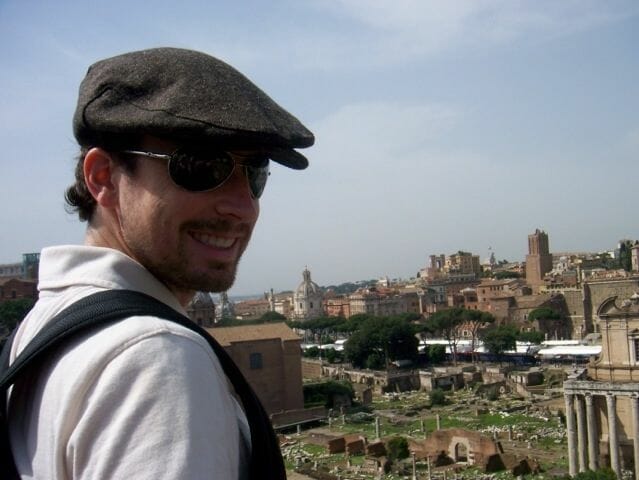
Steele Brand is a Postdoctoral Fellow at the Clements Center for History, Strategy and Statecraft. Brand’s research explores how constitutional ideals in the ancient world engendered civic militarism, particularly in Israel, Greece, and Rome.
“The First Grand Strategists? War and Politics in Ancient Egypt and Iraq” with Garrett Fagan
Wednesday, Apr 23, 2014 | 12:15 pm | Eastwoods Room, Texas Union
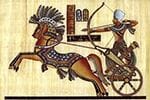
In this lecture Garrett G. Fagan considers the geopolitical and military situation in the Ancient Near East, especially in the Early Dynastic III Period of Sumer (ca. 2500-2100 BCE) and the Late Bronze Age (ca. 1500-1100 BCE), and explores what the evidence tells us about any supposed “Grand Strategy” the various players were adhering to. He also asks the more basic question of whether or not such early states even had the apparatus to formulate “Grand Strategy” in the first place.
Company Man: Thirty Years of Controversy and Crisis in the CIA
Tuesday, Apr 22, 2014 | 12:15 pm | SRH 3.122
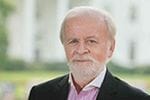
The Clements and Strauss Centers invite you to a presentation with John Rizzo, Former Acting General Counsel of the CIA, on Tuesday, April 22 from 12:15-1:30pm in SRH 3.122. Rizzo will be discussing his recently published book, Company Man: Thirty Years of Controversy and Crisis in the CIA. A book signing will follow the presentation.
Iraq’s Biggest Lesson: What We Must Learn From Our Ten Year Rebuilding Program in Mesopotamia
Thursday, Apr 17, 2014 | 12:15 pm | SRH 3.122
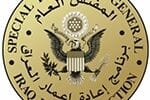
In 2003, the United States entered Iraq expecting a short stay and a modest rebuilding program. Those plans evaporated quickly. Efforts soon turned from a focus on liberate and leave to a new-found strategy of occupy and rebuild. This enormous shift fundamentally altered the arc of our energies and investment, foisting forward a continuous train of challenges that the American “civ-mil” bureaucracy was not well suited or prepared to handle.
Isolationism: Policies of the Past and Lessons for Today
Wednesday, Apr 16, 2014 | 5:15 pm | SRH 3.124

The Associated Press reports, “Americans’ Isolationism on the Rise.” Ron Paul captured 23% of the vote in the 2012 New Hampshire primary. Some are now talking about his son, Sen. Rand Paul, as the front-runner for the GOP nomination.
The Clements Center Presents U.S. Senator Marco Rubio
Tuesday, Apr 15, 2014 | 4:00pm | Blanton Museum Auditorium
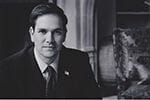
U.S. Senator Marco Rubio (R-FL) will be speaking at the University of Texas on Tuesday, April 15th at 4:00pm. This event is free and open to the public but advance registration is required.
The National Security Agency at the Crossroads
Thursday, Apr 03, 2014 | 8:30 am | AT&T Executive Education and Conference Center

The Intelligence Studies Project is a joint venture of the Strauss Center and Clements Center at the University of Texas at Austin, aiming to encourage policy-relevant academic inquiry into the past, present, and future of intelligence agencies and the legal, policy, and technological environments in which they operate.
The History Behind the Hustle: Petrodollars, Abscam, and Arab-American Political Activism, 1973-1981
Thursday, Mar 20, 2014 | 4:00 pm | History Department, First Floor

The sharp spike in the price of oil in the early 1970s provided petroleum-producing countries with enormous revenues–petrodollars–to invest in the global economy. By the second half of the decade, there was widespread fear in the United States that Arab governments, companies, and individuals were using their vast wealth the “buy up America.”
Realpolitik: Ancient to Modern with Arthur Eckstein
Wednesday, Mar 19, 2014 | 12:15 pm | Eastwoods Room, Texas Union

It is clear that the foundations of Realist international systems theory, which we see in modern university political science departments (as well as in the State Department) can be found in the thinking of ancient intellectuals. That is, ancients understood that states existed in an anarchy without international law, that this required them to engage consistently in power-maximizing behavior (power-maximizing was natural); and since all states were engaged in this power-maximizing activity, frictions and wars between them were naturally frequent.




